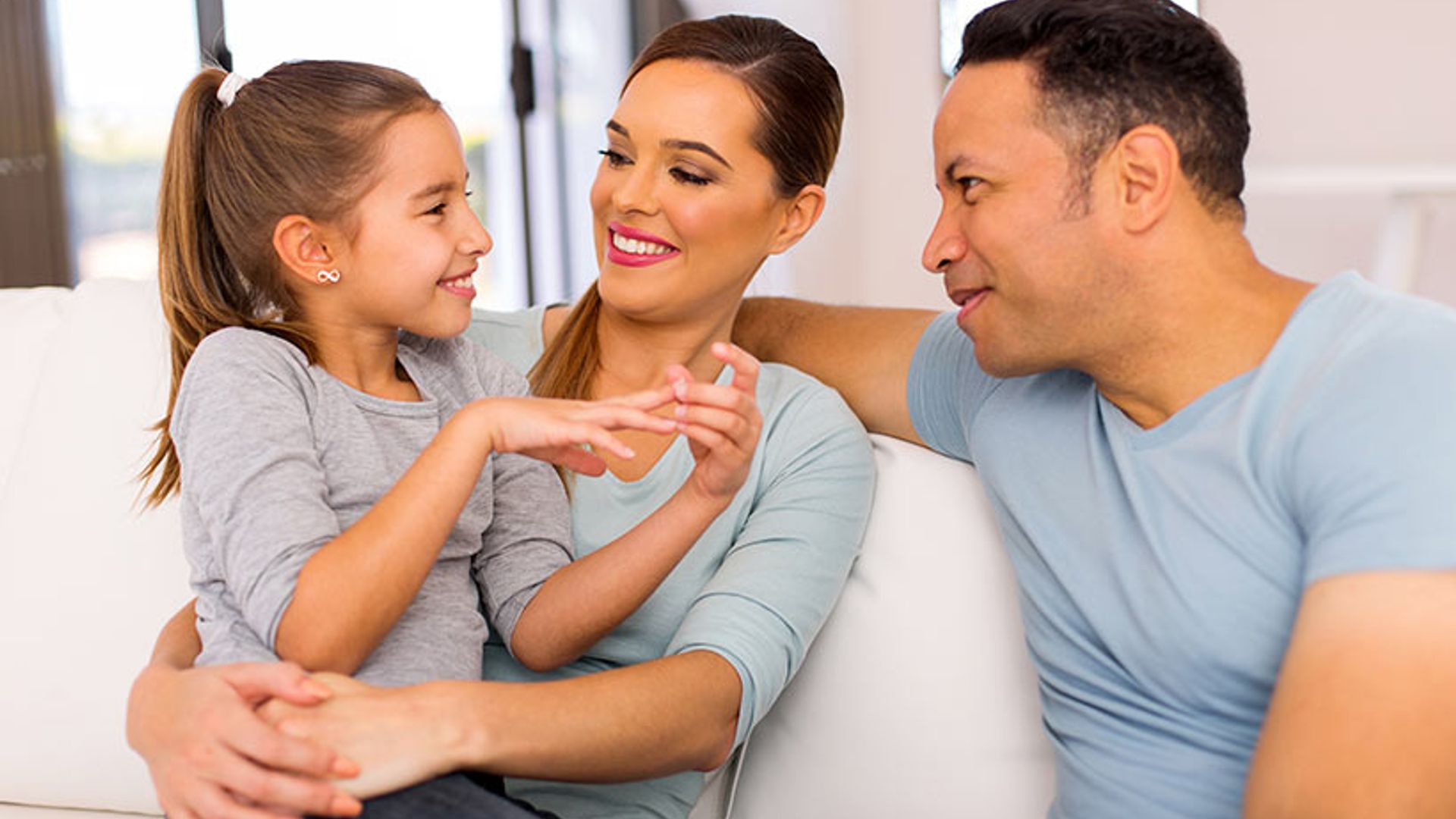Prince William and Kate have openly said they want their children, Prince George and Princess Charlotte, to be part of a generation who can talk about their emotions more easily. "Catherine and I are clear that we want both George and Charlotte to grow up feeling able to talk about their emotions and feelings," William said back in April. "Emotional intelligence is key for us all to deal with the complexities of life and relationships."
As Mental Health Awareness Week kicks off, HELLO! has spoken to Isabelle Campbell, a trainer and spokesperson for CABA, a charity that supports the wellbeing of chartered accountants and their families. Isabelle, who is focused on fostering emotional wellbeing and positive mind-sets through her training and advice, has shared her top five tips on how parents can encourage their children to talk about mental health issues and make them feel safe.
Tip one: Develop their awareness
A vital part of talking to your children about mental health is helping them to develop an awareness of what feelings are from a young age. This includes helping them to label their emotions properly, so they begin to understand what they are. We have to help them understand why they want to shout by explaining what anger is, so they can begin to understand and regulate emotions too. After all, understanding the emotional motivations behind actions is key to understanding mental health and wellbeing.
Tip two: Start labelling to build understanding
When these kinds of situations occur, it's really important to encourage the labelling of emotions so that they can develop an understanding of these feelings. Some children may end up using sensations or colours to describe what they're going through as they don't yet have the words – that's perfectly okay, as that’s what developing emotional awareness is all about: learning to label and understand these sensations. Helping them to develop emotional language is the ultimate goal – as if they develop their own understanding, they'll be better prepared to handle their own mental health as time goes on.
Celebrities who have spoken out about mental health issues
Tip three: Make them feel safe
It's really important to make sure children feel safe talking to their parents about what they're feeling. They'll go through a lot of emotions at a young age: they can get deeply upset about not being allowed to play with friends, or very angry about having to brush their teeth, as at the time these things feel like the end of the world. Parents should try to avoid getting cross with their children if they are unwilling to communicate or are acting out because they feel emotional – especially if they think this behaviour is linked to underlying issues.
Tip four: Develop a ritual
Parents should be focused on showing their children that they're ready to listen to them, no matter what, and that they won't pass judgement (within reason) on what is disclosed to them. What kind of activities make children open up the most? For many people, this can mean the most basic of activities. Shared times like taking the dog for a walk or spending a morning running errands can foster fantastic organic conversation. For younger children, activities like bath time or bed time are also great moments to try and talk. It all boils down to not forcing the issue and avoiding interrogation. It's a good idea during these times to try to avoid responding with anger, accusations, or punishments – especially if the conversation isn't going the way you'd like it to. Instead, focus on listening and making disclosure feel like a safe activity for your child.
Tip five: Make it feel normal
Making it normal encouraging your children to talk about these issues all help with this. If you display that behaviour, then to them discussing mental health and how they’re feeling becomes what's normal. Normal in the family then translates to normal on the playground, and they'll start to consider the things they talk about in the home as the things they should be talking about outside of it.










